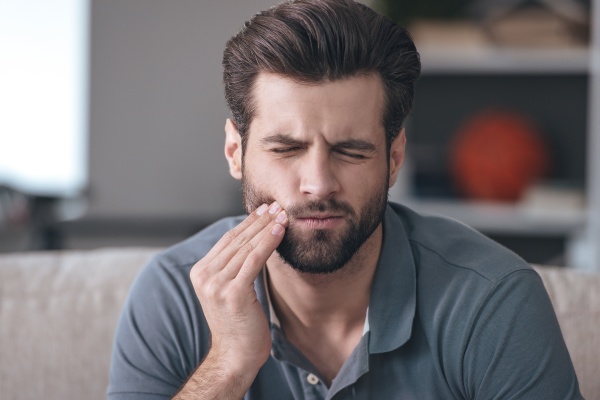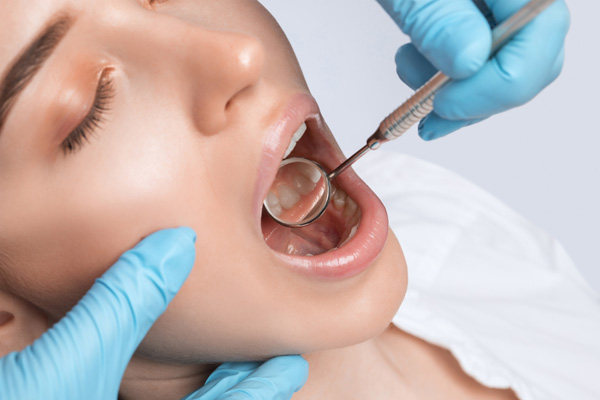Ways to Avoid a Dental Emergency During Coronavirus Concerns

While the coronavirus rages on, emergency dentistry is still in business. Of course, no one wants to deal with a dental emergency. It is nice to know help is available to solve many issues. Still, if you can follow some basic guidelines, you can maintain good oral wellness. This will limit your risk of exposure to COVID-19 as well.
Types of dental emergencies
Many places throughout the world have postponed elective medical procedures during the COVID-19 pandemic. Similarly, locations across the globe are only allowing emergency dentistry offices to stay open. Meanwhile, general dentistry practices are closed. Dentists will continue to see patients who are experiencing swelling of the gums and jaw. Patients who break or lose teeth can also contact the emergency dentist for an appointment. Also, people who have severe toothaches should seek treatment. Putting off these issues can lead to infection as well as tooth and bone loss.
Be diligent about oral hygiene
Now, perhaps more than ever, patients should keep up on good oral health habits. People of all ages should brush at least twice a day, preferably in the morning and before retiring to bed for the day. Daily flossing is also critical. These activities will help keep cavities at bay. Brushing and flossing will eliminate plaque and tartar buildup. These actions can prevent bacteria from forming between teeth and on the gumline.
Take care of mouth appliances and other treatment items
Normally, emergency dentistry offices will see patients who have broken their crowns, veneers and other restorative work. Ignoring these needs can be painful and may increase the chances of the patient getting an infection. Patients with dentures who break these apparatuses should call the emergency dentist right away. The dentist can fit the patient with a temporary set of dentures before a new permanent one is ready.
Proper care and maintenance of these items is essential. Avoiding hard foods such as ice, popcorn and candy will reduce the risks of breaking them. As for dentures, daily rinsing, soaking and brushing will help preserve the appliances. When it comes to removable apparatuses, patients should secure them carefully when not using them.
Wear the right gear for the right activities
Fortunately, the coronavirus pandemic has required people to avoid getting outside and exercising. Many physical activities can help people maintain physical and emotional health. This is especially true during this time. People with mouth appliances should wear mouthguards when playing sports, biking or riding a bike. Being cautious and following safety rules will also help avoid emergency dentistry.
Emergency dentistry is here to help if you need it
You should not hesitate to call your dentist if an immediate dental need arises. Offices are taking all prudent precautions during the pandemic. Still, you can have peace of mind and limit your risks of virus exposure. It is good to stay away from the dentist’s office during these times of limited out-of-home travel. Following these guidelines are good ways to maintain oral health. If you have questions about when you should seek dental care, speak with your dentist today.
Request an appointment here: https://hemetdentalcenter.com or call Hemet Dental Center: Brian Stiewel DDS, INC. at (951) 707-4366 for an appointment in our Hemet office.
Check out what others are saying about our services on Yelp: Read our Yelp reviews.
Recent Posts
Composite fillings, especially newer ones, are reasonably strong and durable, but they can wear out over time. Excess pressure, such as may occur when you grind your teeth, can cause them to wear out more quickly. Poor dental hygiene may contribute to decay that can compromise fillings. A filling that is loose is not a…
Composite fillings are a common treatment for filling cavities and addressing tooth decay. These treatments often use tooth-colored, durable materials that can last for several years, but only if the filling is taken care of properly. It is important to avoid eating certain foods after getting a filling in order to protect the procedure and…
In the past, unsightly metal fillings were used to treat cavities. Today, more patients prefer composite fillings, which serve the same purpose but with more natural-looking results. Dental fillings are relatively straightforward and do not require too much aftercare. However, there are ways to help reduce discomfort, prevent damage and prolong the life of composite…
Tooth colored fillings are used to fill in holes in the teeth caused by decay. Professionals mold the fillings out of composite resin. Once the dentist cleans the tooth's cavity, the dentist fills and closes off the hole with the filling. The fillings match a patient's natural teeth to ensure a normal-looking smile. Composite resin…


